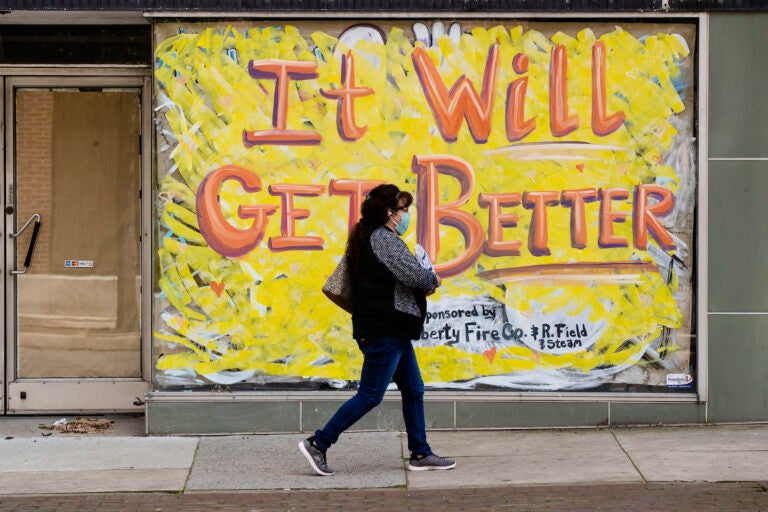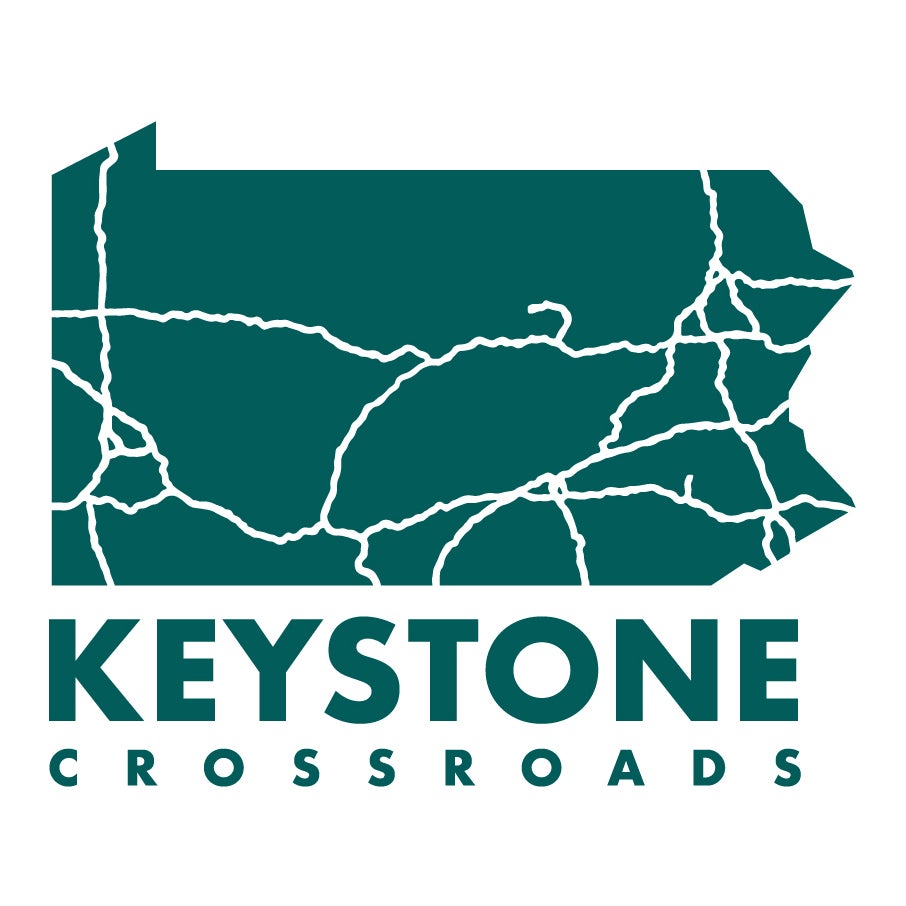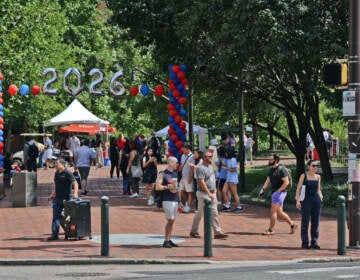As deadline looms to renew $600 jobless benefits, Pa. ‘workers are terrified’
The $600-a-week federal supplement was designed to make the average worker whole during the worst economic downturn in at least four decades.

A person wearing a protective face mask as a precaution against the coronavirus walks by a closed storefront in Lebanon, Pa., Tuesday, May 12, 2020. (AP Photo/Matt Rourke)
Are you on the front lines of the coronavirus? Help us report on the pandemic.
This week, Congress is considering another pandemic stimulus package, as unemployment remains stubbornly high across the country and coronavirus cases rise nationwide.
One hotly watched agenda item is the extra $600 per week in unemployment assistance the federal government has been bankrolling since the spring, which is set to expire at the end of the week.
The majority of the 3.3 million Pennsylvanians who have applied for some form of unemployment assistance since the CARES Act passed should have received the additional $600 payments, according to the state Department of Labor and Industry.
Since the start of the coronavirus pandemic, the commonwealth has passed on $13.5 billion in Federal Pandemic Unemployment Compensation funds to Pennsylvania residents.
Here’s a rundown of how that program has worked so far, and the other forms of assistance that will keep running if and when this one expires.
How it works
In March, the CARES Act created Federal Pandemic Unemployment Compensation (FPUC), or that extra $600 on top of regular unemployment benefits. It goes to anyone who qualifies for benefits under either the traditional unemployment system or a new, broader category of unemployment that includes freelancers and gig workers that was known as Pandemic Unemployment Assistance (PUA).
The $600-a-week federal supplement was designed to make the average worker whole during the worst economic downturn in at least four decades.
Typical unemployment payments, on average, cover only about 41% of an American worker’s salary, according to the Brookings Institution. In Pennsylvania, the amount is capped at up to 50% of your weekly wages.
Now, without further action from Congress, FPUC is slated to end on July 25. That sets up a tussle over the federal vision for the next phase of pandemic assistance. Democrats in Washington have lobbied for extending the payments as is. Republican leaders have expressed a desire to reduce payouts to avoid making jobless benefits competitive with working wages.
President Donald Trump’s administration has also proposed instead using stimulus funds to reduce payroll taxes.
Since the boosted benefits were created, some have questioned their logic. Some employers have complained the funds have made it harder to reopen as normal.
Others have complained that it’s not fair for essential workers in some cases to get paid less than they would make on unemployment. Many workers have taken relief in a benefit that has allowed them to get by without pushing them into job situations that could be a health risk.
Data collected on who receives unemployment in Pennsylvania indicates that restaurant, tourism and hospitality workers are generally the hardest hit and are remaining on unemployment.
“Workplaces are still shut down, or … are not hiring again, and it’s really impossible to find a job,” said Julia Simon-Mishel, supervising attorney in the unemployment compensation unit at Philadelphia Legal Assistance. “Workers are terrified” of losing the extra $600.
Jamie Lee, who lives in Wilkes-Barre with her husband and three of their kids, said that without the boosted benefits she would be bringing in $220 a week on traditional unemployment. She was laid off in mid-March from her job at an adult day care center.
“I can honestly say it has kept us floating during this whole pandemic,” she said in an email. Her husband has continued to work as a delivery driver, but his income is not enough. Her job was supposed to start back in July, then in August, but she’s not sure that will happen with cases worsening. She has tried to find work in other fields, such as retail, only to be turned away due to lack of business.
Lee said they’re still behind on some of their bills, such as their two car payments, but “without the extra $600 a week, we would be in a bigger mess than we are now.”
Many other Pennsylvanians find themselves similarly dependent on the boosted federal benefits.
“For a lot of my clients, their regular unemployment rate is somewhere between $90 and $150 a week, and so the $600 has been the only thing keeping them afloat during this time,” said Simon-Mishel. The minimum payment for PUA is $195 a week.
Unemployment duration is extended, even if extra cash isn’t
Despite the federal debate over boosted benefits, traditional unemployment aid and Pandemic Unemployment Assistance will continue.
Both the state and federal governments have announced extensions to the amount of time someone who is unemployed can draw compensation.
Under normal circumstances, benefits in Pennsylvania run out after 26 weeks of unemployment payments are received in a given year. The federal government created an extension, called Pandemic Emergency Unemployment Compensation (PEUC), extending benefits by an additional 13 weeks.
In the event that a person exhausts that program as well, the state has its own backstop program, called simply “extended benefits,” which tacks on up to an additional 13 weeks. All told, someone who remains out of work for a full year due to the pandemic would be able to receive unemployment compensation the whole time. However, they won’t receive the greater amount of money going forward unless Congress renews it.
The extended assistance program, PUA, which covers temporary workers, people in the gig economy or those without a documented work history, runs for 39 weeks or until the end of 2020.
As for those people worried about affording necessities if the extra $600 goes away, state officials urge that they apply for food, health care and utilities assistance and emergency cash payments.
“The federal government funds [FPUC], and they’re ending the payments,” said state Labor and Industry Secretary Jerry Oleksiak. “I want to remind you that there are other resources available through the commonwealth of Pennsylvania.”
He said anyone still waiting on backdated $600 payments will still receive them and “be made whole.”

Get more Pennsylvania stories that matter
WHYY is your source for fact-based, in-depth journalism and information. As a nonprofit organization, we rely on financial support from readers like you. Please give today.




![CoronavirusPandemic_1024x512[1]](https://whyy.org/wp-content/uploads/2020/03/CoronavirusPandemic_1024x5121-300x150.jpg)


